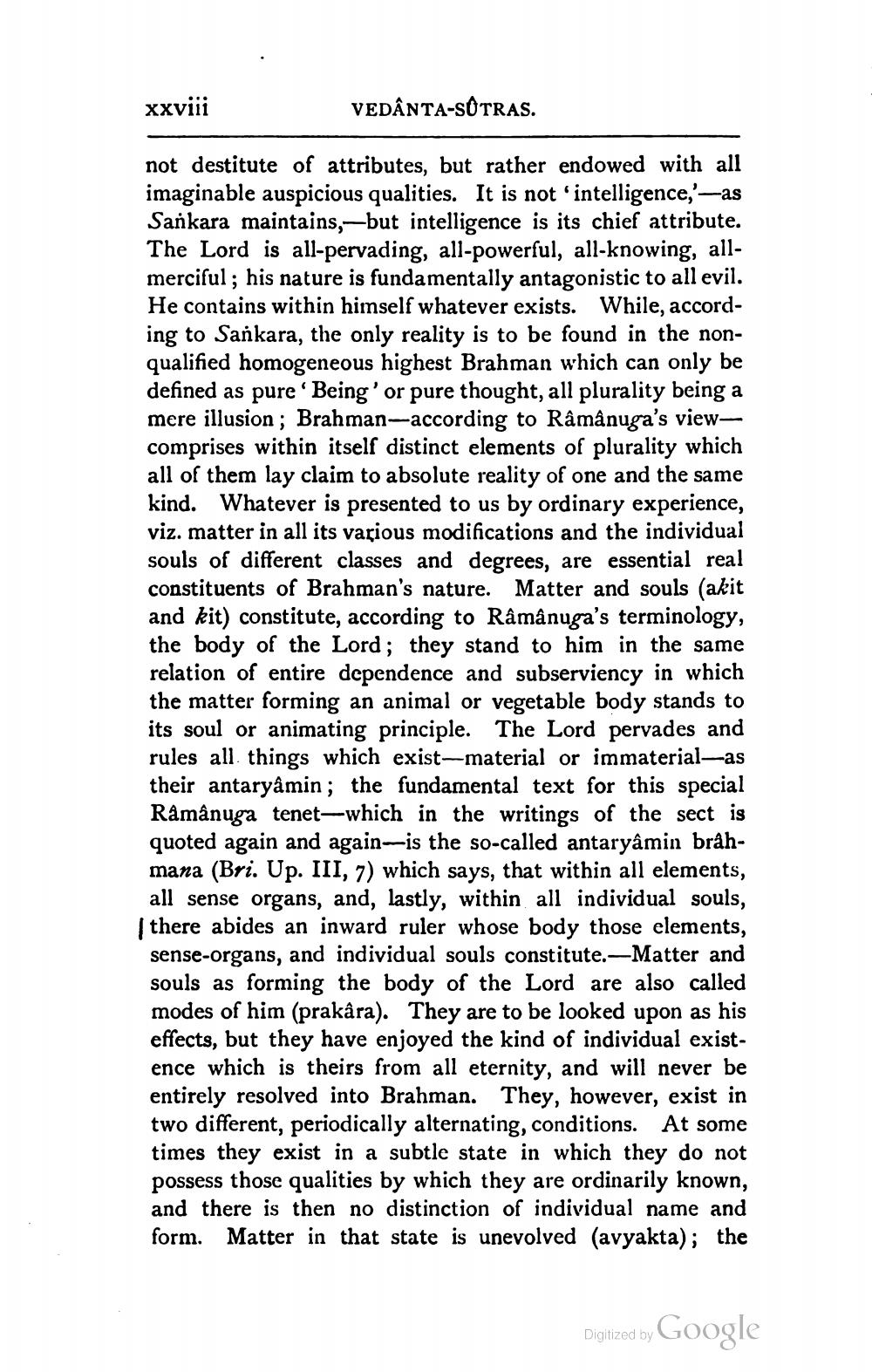________________
xxviii
VEDÂNTA-SOTRAS.
not destitute of attributes, but rather endowed with all imaginable auspicious qualities. It is not intelligence,'—as Sankara maintains,—but intelligence is its chief attribute. The Lord is all-pervading, all-powerful, all-knowing, allmerciful; his nature is fundamentally antagonistic to all evil. He contains within himself whatever exists. While, according to Sankara, the only reality is to be found in the nonqualified homogeneous highest Brahman which can only be defined as pure 'Being'or pure thought, all plurality being a mere illusion; Brahman--according to Râmânuga's viewcomprises within itself distinct elements of plurality which all of them lay claim to absolute reality of one and the same kind. Whatever is presented to us by ordinary experience, viz. matter in all its various modifications and the individual souls of different classes and degrees, are essential real constituents of Brahman's nature. Matter and souls (akit and kit) constitute, according to Râmânuga's terminology, the body of the Lord; they stand to him in the same relation of entire dependence and subserviency in which the matter forming an animal or vegetable body stands to its soul or animating principle. The Lord pervades and rules all things which exist-material or immaterial-as their antaryåmin; the fundamental text for this special Råmânuga tenet—which in the writings of the sect is quoted again and again is the so-called antaryâmin brâhmana (Bri. Up. III, 7) which says, that within all elements, all sense organs, and, lastly, within all individual souls, there abides an inward ruler whose body those elements, sense-organs, and individual souls constitute.—Matter and souls as forming the body of the Lord are also called modes of him (prakâra). They are to be looked upon as his effects, but they have enjoyed the kind of individual existence which is theirs from all eternity, and will never be entirely resolved into Brahman. They, however, exist in two different, periodically alternating, conditions. At some times they exist in a subtle state in which they do not possess those qualities by which they are ordinarily known, and there is then no distinction of individual name and form. Matter in that state is unevolved (avyakta); the
Digitized by Google
Digitized by




